

Essay on Biomedical Engineering
Students are often asked to write an essay on Biomedical Engineering in their schools and colleges. And if you’re also looking for the same, we have created 100-word, 250-word, and 500-word essays on the topic.
Let’s take a look…
100 Words Essay on Biomedical Engineering
Understanding biomedical engineering.
Biomedical engineering is a special branch of engineering. It combines the principles of both medicine and engineering. The main goal of this field is to create and improve medical equipment and devices. This helps doctors diagnose and treat diseases more effectively.
Role of Biomedical Engineers
Biomedical engineers work on creating new medical devices. These can be artificial organs, prosthetics, or even machines for medical testing. They also repair and maintain medical equipment. In addition, they play a vital role in researching and developing new medical treatments.
Importance of Biomedical Engineering
Biomedical engineering is very important in modern medicine. It helps in creating advanced tools and technologies. These advancements make it easier to diagnose and treat different diseases. This field has a great impact on improving the quality of healthcare.
Future of Biomedical Engineering
The future of biomedical engineering is very promising. With the rapid advancements in technology, this field is expected to grow even more. It will continue to bring new and improved medical devices and treatments. This will greatly benefit the medical field and patients.
250 Words Essay on Biomedical Engineering
What is biomedical engineering.
Biomedical Engineering is a special branch of engineering. It combines the study of medicine and biology. The main aim is to create systems and devices that can improve healthcare. This means that biomedical engineers work on things that help doctors diagnose and treat diseases.
Work of Biomedical Engineers
Biomedical engineers design medical equipment. This can be anything from tiny devices like pacemakers to large machines like MRI scanners. They also create software to run these machines. Sometimes, they even design artificial body parts like knees or hips.
Biomedical engineering is very important in the medical field. It helps to make treatments safer and more effective. For example, a biomedical engineer might design a new kind of heart monitor. This monitor could help doctors keep a closer eye on their patients.
Education for Biomedical Engineers
To become a biomedical engineer, you need to study a lot. First, you need to finish high school with good grades in science and math. Then, you need to go to college. There, you will study subjects like biology, chemistry, and physics. You will also learn about engineering principles.
In conclusion, biomedical engineering is a fascinating field. It combines science, medicine, and engineering to improve healthcare. It’s a challenging career, but also very rewarding. If you love science and want to help people, biomedical engineering could be a great choice for you.
500 Words Essay on Biomedical Engineering
Biomedical Engineering is a special type of engineering. It combines biology and medicine with engineering principles. The main goal of this field is to create solutions for many health problems. It’s all about improving patient care, including diagnosis, monitoring, and therapy. Biomedical engineers use their skills in both engineering and the medical sciences.
The Role of Biomedical Engineers
Biomedical engineers work on many different things. They design medical devices like artificial organs, prosthetics, and medical equipment. They also create software to run medical equipment or to analyze medical research data. They often work in labs, hospitals, or research facilities. Their work helps doctors and nurses do their jobs better.
Specializations in Biomedical Engineering
There are many special areas in biomedical engineering. Some engineers focus on creating better medical imaging machines. These machines help doctors see inside the body without needing to do surgery. Other engineers work on biomaterials. These are materials made for use in the body. They can be used to replace parts of the body, like bones or organs.
Another important area is tissue engineering. This is about creating new tissues or organs in the lab. This could help people who need organ transplants. Biomedical engineers also work on genetic engineering. They study and change the genes in our bodies to help cure diseases.
Biomedical engineering is very important for our health. It has led to many big improvements in medicine. For example, engineers have created artificial hearts and kidneys. They have also made machines that can help people breathe or keep their blood clean.
Biomedical engineering also helps us understand our bodies better. By studying how our bodies work, engineers can come up with new ways to help us stay healthy or to treat diseases.
The future of biomedical engineering looks very exciting. Engineers are working on many new projects. They are trying to make better medical devices and treatments. They are also working on ways to grow organs in the lab. This could help many people who need organ transplants.
In conclusion, biomedical engineering is a very important field. It combines engineering and medical science to help improve our health. It’s a field that has a big impact on our lives and will continue to do so in the future.
That’s it! I hope the essay helped you.
If you’re looking for more, here are essays on other interesting topics:
- Essay on Biochemistry
- Essay on Biofuel
- Essay on Bilingualism
Apart from these, you can look at all the essays by clicking here .
Happy studying!
Leave a Reply Cancel reply
Your email address will not be published. Required fields are marked *
Save my name, email, and website in this browser for the next time I comment.
Colorado State University
Walter scott, jr. college of engineering.
- College Faculty and Staff Award Recipients
- Departments and Programs
- Engineering at CSU Spur
- Dean’s Office
- Find your way around campus
- Website map
- Scott Undergraduate Research Experience
- SURE Poster Fair & Celebration
- Walter Scott, Jr. Undergraduate Scholarship
- Faculty Directory
- Academic Advising
- Education Abroad
- Engineering Exploration Day: Fall 2024
- Engineering Residential Learning Community
- Undergraduate Programs
- Graduate Programs
- Transfer Students
- Department and unit committees
- Diversity Initiatives
- Engage Diversity Events
- Distinguished Researchers and Honors
- Laboratories and Facilities
- Engineering Success Center
- Career Advising
- Career Fair
- Cooperative education program
- Financial aid and Scholarships
- Student Awards and Recognition
- Student Organizations
- College Events Calendar
- Commencement
- Students: Fall 2023 Engineering Exploration Day
- Engineering Days
- On-campus tours and visits
- Faculty and Staff Resources
- Orientation
- Educators: Spring 2024 Engineering Exploration Day
- ENcourage Engineering Math Program
- ENpower Bridge Program
- Summer Programs
- Alumni and Giving
Popular Pages
- Tours and Visits
A Love Letter to Biomedical Engineering: Why I Chose BME
Hello there, reader. My name is Michelle Hefner and I am a fourth-year student in Biomedical Engineering and Chemical and Biological Engineering here at CSU .
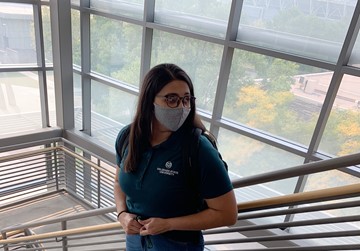
The impact of BME
Imagine having the power to make a difference in millions of people’s lives around the world by innovating and advancing the way we as a human rac e approach our most complex problems in human health. Imagine being able to wake up every day and learn from people who believe in and aspire to achieve these same goals as you. Well, that’s kind of how I feel about studying biomedical engineering here in the Walter Scott, Jr. College of Engineering .

There are so many incredible topics to study , amazing professors, and impressive researchers in the School of Biomedical Engineering (SBME) that create such a beautiful environment that exudes inspiration. I won ’t lie –the coursework is not easy–but it isn’t as hard to stay motivated and determined to get through and excel in my degree program when I know the outcome will be changing people’s lives in ways I cannot even fathom. And that’s exactly how I knew I wanted to study something to make an impact that big in the world , about 12 years ago.
There’s a silver lining in every dark cloud
When I was 10 years old, life was pretty sweet. There wasn’t much to worry about besides not being late to basketball practice, filling out my reading log every night for school, and whether or not the kids in my neighborhood could go ride bikes with my sister and me in the evenings– you know, the co olest thing to do before social media was a big deal.
That is until one day when I came home from school and my mom and dad , with a quiet, somber demeanor, sat us down and told us my mom had gone to the doctor earlier that day and had been diagnosed with thyroid cancer. Yup, the c-word that scares us all as adults and is all the more confusing to a 10-year-old.
...one day when I came home from school and my mom and dad, with a quiet, somber demeanor, sat us down and told us my mom had gone to the doctor earlier that day and had been diagnosed with thyroid cancer
At first, I didn’t really understand. Was my mom in pain? Can the doctor fix it? Was she going to die?? I mean what are you supposed to think about a parent being diagnosed with cancer when you’re 10? To be honest, I don’t truly remember my initial reaction, but I do remember I was heart-broken, upset, and very confused. My mom did everything in her power, though, to make sure that we knew she was going to get through it , and everything was going to be okay.
Fast forward to my mom going through various radiation treatments , surgery to remove her entire thyroid, and a lot of doctor’s visits , and she finally beat the cancer .
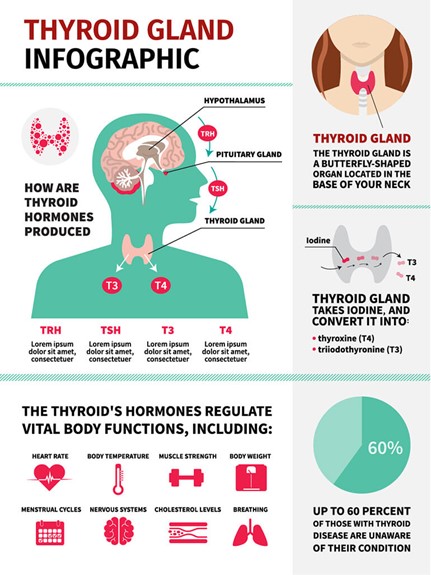
Witnessing all of it was the most difficult thing I had to go through as a kid , but it also showed me that a huge part of the reason my mom was okay in the end was thanks to all the medical technology available. All the diagnostic imaging, surgical tools, treatments, and medications were used seamlessly by the medical professionals and I was so interested in how people invented and built these instruments and tools in the first place. Their ideas and inventions have truly saved so many lives –like my mother’s– while improving the quality of others, and I felt in my heart that that was the kind of impact I wanted to have on the world during my lifetime .
I felt in my heart that that was the kind of impact I wanted to have on the world during my lifetime
“OK Google, what is a biomedical engineer?”
So, no, I didn’t immediately think “I’m going to be a biomedical engineer now ” when I was 10 years old, but I knew that I wanted to have a career someday where I could have the opportunity to create, research, and even invent some kind of medical technology or medicine in the future. That feeling of wanting to make a difference in this way never escaped my mind , and sure enough in high school I felt the same and knew I wanted to prepare for a career like this by going to a university .
That feeling of wanting to make a difference in this way never escaped my mind
I thought engineering would be a good place to look for majors since I enjoyed math and science , but I didn’t know how exactly the medical aspect could be incorporated. So I reached out to my good friend, the internet, and quite literally googled “types of engineering.” It was there that I found biomedical engineering was something I could major in at a number of universities across the nation.
The rest is history and I enrolled in to a biomedical engineering degree program my first year of unive rsity, although I did not end up at CSU right after high school –but that’s for another blog post.
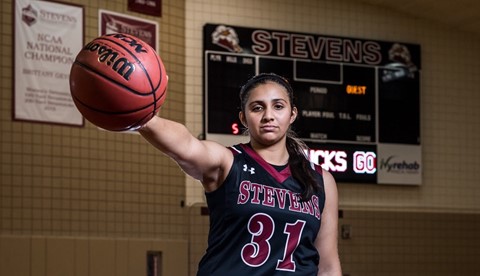
Finding my niche
Currently I am in my 4 th year (out of 5) in the biomedical engineering and chemical and biological engineering degree program here in the Walter Scott, Jr. College of Engineering. I have taken every opportunity I can to explore my interests using the different skills I acquire in my coursework, and in my third year I found myself in a laboratory in the College of Health and Human Sciences as an undergraduate researching computational neuroscience and machine learning techniques for data-driven approaches for understanding aging in the human brai n. I love what I do, and I haven’t looked back since .
For future plans, I hope to further my study and research in computational neuroscience or bioinformatics in graduate school. Ultimately, I would like to have a professional research career where I can work to improve imaging for diagnosing life-threatening or debilitating diseases like my mom’s cancer, except related to aging in the human brain.
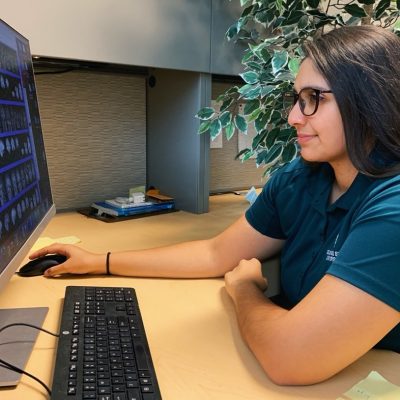
I would like to have a professional research career where I can work to improve imaging for diagnosing life-threatening or debilitating diseases like my mom’s cancer
Advice to young students seeking a degree in biomedical engineering
I know for a fact that my story of how I came to choose to study biomedical engineering is surely different than most, but, in my opinion, that doesn’t mean you have to have some unique moment in which you have a revelation and decide that you want to study biomedical engineering. The discipline itself is so fascinating and fulfilling that I think any reason is a good reason to study and pursue a degree in biomedical engineering .
Like all other eng ineering disciplines, through our work we can bring people together, make the world safer, help the world learn, keep people healthy, and keep things running smoothly . At least to me, there is no better reward and that is beautiful.
Thinking of biomedical engineering? You can see if the program or path is right for you here: https://www.engr.colostate.edu/sbme/

Author: Michelle Hefner
Michelle is a fourth-year undergraduate student in the Biomedical Engineering dual-degree program with a partner major of Chemical and Biological Engineering. She enjoys playing basketball, ma king her coworkers laugh, leading the Society of Hispanic Professional Engineers student chapter, and listening to a variety of music. Michelle has career goals of pursuing a Ph.D and becoming a research scientist in neural engineering.
If you have any questions, please feel free to reach out to the engineering ambassador team at [email protected] !
Calculate for all schools
Your chance of acceptance, your chancing factors, extracurriculars, writing a biomedical engineering essay - need ideas.
Hey, I'm currently a high school junior and I'm working on an essay about why I want to major in biomedical engineering. Could you guys give me some inspiration or key points that I should include in my essay to make it stand out? Thanks!
Hey! Biomedical engineering is a fascinating field, and I'm glad to see you're interested in it. To make your essay stand out, consider focusing on a few key aspects:
1. Personal Connection: Explain how your own experiences or interests have led you to pursue a biomedical engineering major. This could be a family member's health issue, a personal passion for healthcare, or an inspiring experience like an internship or biomedical-related project you've completed.
2. Specific Applications: Discuss some niche areas within biomedical engineering that you're particularly interested in, such as prosthetics, tissue engineering, or medical imaging. Connecting these applications to real-world problems or innovations can help demonstrate your knowledge of the field and your eagerness to contribute to its growth.
3. Unique Perspective: How do you plan to make a difference in the world of biomedical engineering? Explain why your experiences, values, and goals could help you develop unique solutions to complex biomedical challenges. This may involve discussing an interdisciplinary approach, connecting biomedical engineering with other fields, or exploring ethical considerations within the industry.
4. Research Opportunities: Mention some specific research projects or faculty members at the college/university you're applying to that you'd like to work with. This shows genuine interest in their program and demonstrates that you've done your research on the opportunities available for biomedical engineering majors at that institution.
5. Future Goals: Discuss your long-term goals, such as pursuing advanced degrees, starting a biomedical engineering company, or conducting groundbreaking research in a particular area. Having a clear vision of your future in the field can leave a strong impression on the admissions officers.
To learn more about writing a "Why this Major" essay, read this blog post: https://blog.collegevine.com/why-this-major-college-essay/
Remember to be authentic and focus on the aspects that genuinely reflect your passion and motivation for biomedical engineering. Good luck with your essay!
About CollegeVine’s Expert FAQ
CollegeVine’s Q&A seeks to offer informed perspectives on commonly asked admissions questions. Every answer is refined and validated by our team of admissions experts to ensure it resonates with trusted knowledge in the field.
Undergraduate Admission
Biomedical engineering, here, the healers and the menders learn to build the future of human health..

"Not only are all the students talented and passionate, but they are all unique individuals that are welcoming and kind."
College of Engineering
If you’re the curious and caring kind, a we-can-make-something-to-fix-that tinkerer, this is the place for you. In our undergraduate Biomedical Engineering program, you’ll discover how engineering principles can be applied to living systems and how to improve human health by developing advanced medical devices and systems. We believe that a top biomedical engineer must be deeply trained in both a traditional engineering practice and the biomedical sciences. You can complete your Biomedical Engineering additional major alongside a major in a traditional engineering discipline in four years.
Biomedical Engineering Major and Minor
Choose the path that fits you best. Browse all current Biomedical Engineering curriculums and courses.
Additional Major Minor
The Biomedical Engineering additional major program draws on extensive collaborations with sister departments in the College of Engineering and major medical institutions in Pittsburgh. When you choose Biomedical Engineering as a major, you also declare a major in one of the traditional engineering disciplines: Chemical Engineering, Civil & Environmental Engineering, Electrical & Computer Engineering, Materials Science & Engineering or Mechanical Engineering. This collaborative approach, combined with a rigorous engineering education, confers unique depth and breadth to the education of Biomedical Engineering graduates. A combination of core courses, a specialized track you choose and a capstone design course give you a solid launchpad to your future.
These specialized tracks build depth in a specific aspect of biomedical engineering and include: biomaterials and tissue engineering, biomechanics, biomedical devices, biomedical signal and image processing, cellular and molecular biotechnology, and neuroengineering. Students interested in building depth in a different area can self-design their own depth sequence.
Department of Biomedical Engineering
Biomedical Engineering Website
Class of 2022, Six Months After Graduation
Employed or in Grad School
Average Salary
Recent Employers
Johnson & Johnson
More Post-Graduation Stats (opens in new window)
High School Course Requirements
*Four years of mathematics should include at least algebra, geometry, trigonometry, analytic geometry, elementary functions (pre-calculus) and preferably calculus. Advanced mathematics courses are encouraged, especially a course in calculus.

Submit your application for the College of Engineering.
Get Started
You’re not just one thing. You’re a scientist. An artist. A technologist. A maker. A writer. Carnegie Mellon has been mixing it up for decades, and whatever you want to pursue, we’ve got the right mix for you.
The CMU Experience
How to Major in Mixing-It-Up

How To Become a Biomedical Engineer

Industry Advice Engineering
Modern advances in medical technology have drastically improved the quality of care doctors are able to provide to patients. From diagnosis to treatment, biomedical devices continue to play a critical role in improving human health. Much of the credit for the development of these advanced technologies goes to biomedical engineers.
Here’s an overview of what a biomedical engineer does, how to become one, and why it’s an excellent career choice.
What Is Biomedical Engineering?
Biomedical engineering is a multidisciplinary field that applies engineering principles and techniques to biology and healthcare. It requires an in-depth understanding of life-science subjects such as biology, chemistry, and physics, as well as engineering knowledge in mathematics and design.
What Do Biomedical Engineers Do?
Biomedical engineers are tasked with a wide range of responsibilities depending on their industry. Common roles include:
- Designing medical devices: Developing medical imaging devices like MRIs, sonograms, ultrasound devices, and other medical technology
- Developing new innovations: Researching and contributing to the development of innovative medical advancements such as artificial organs, or replacement of body parts
- Collaborating with medical staff: Training other professionals on safety and the proper use of biomedical equipment, helping maintain medical devices, and troubleshooting medical equipment when necessary
- Research: Conducting statistical analysis, writing research papers, and offering valuable contributions to the overall scientific community on biomedical engineering methods and results
Biomedical engineers typically work behind the scenes and don’t have much interaction with patients. However, their work plays a critical role in patient recovery or improved quality of life. For this reason, many individuals are motivated to pursue a career as a biomedical engineer.
How to Become a Biomedical Engineer
For individuals interested in biological sciences, mathematics, engineering, and other related sub-disciplines, a position in biotechnology is the perfect career path. The steps to become a biomedical engineer are:
- Fulfill the educational requirements
- Obtain relevant experience
- Develop in-demand skills
- Obtain relevant qualifications, if required by employers
Educational Requirements
The first step to becoming a biomedical engineer is fulfilling the educational requirements of the role. Biomedical engineers typically need at least a bachelor’s in life sciences, biotechnology, or engineering. Many, however, continue their education by pursuing a graduate or doctoral degree as well. According to government data, almost 71 percent of biomedical engineers have a bachelor’s degree; of those, 42 percent also hold a master’s, and 14 percent earned a doctoral or professional degree.
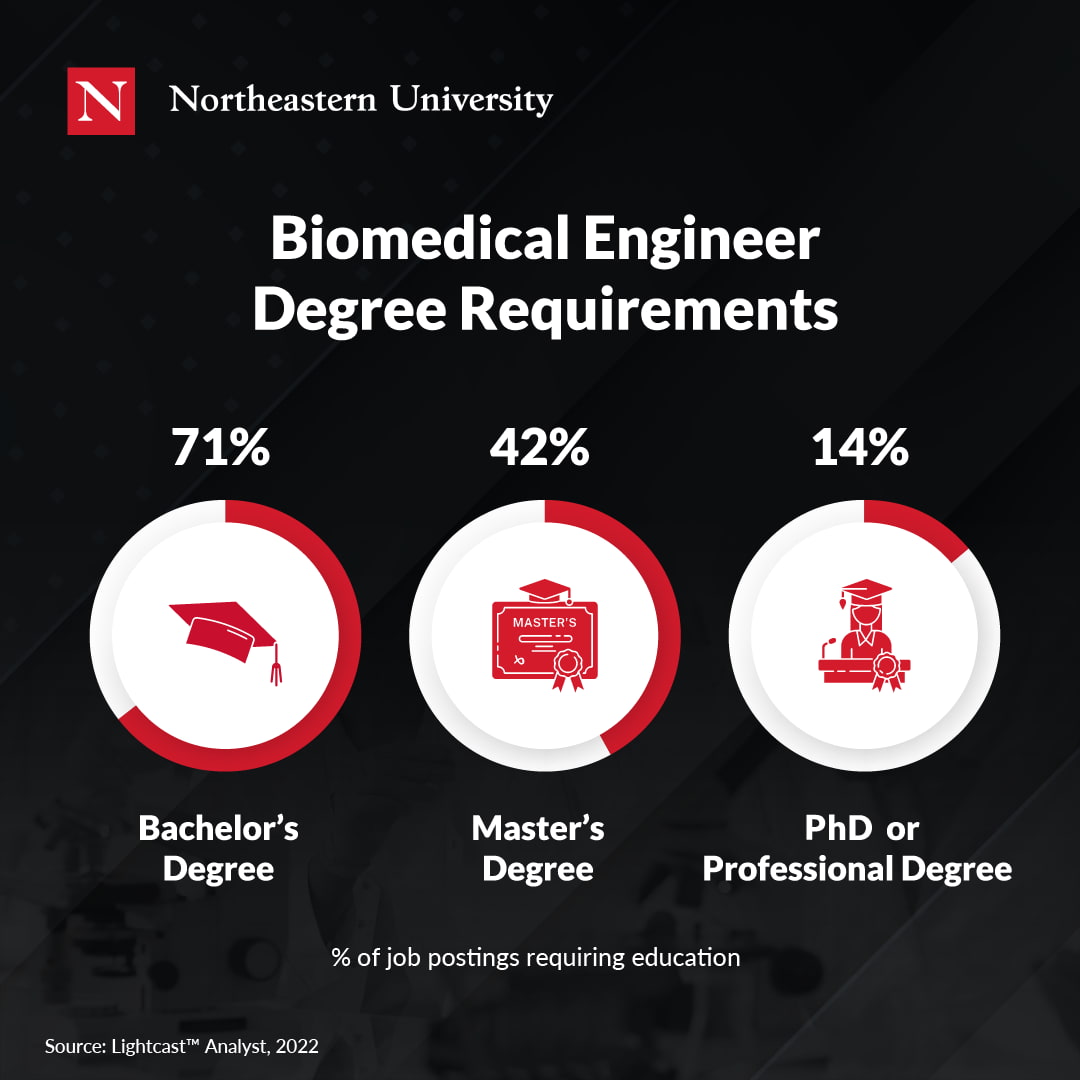
Background Experience
Experience is an important aspect of any professional job posting. Many times employers want to know if applicants have been successful performing job responsibilities in other settings. According to government data, the largest percentage of experience requirements for biomedical engineer job postings is between four and six years of prior experience, comprising 31 percent of job postings. Only 18 percent of postings require one year of experience or less.
Since this industry values prior work experience, prospective biomedical engineers hoping to obtain relevant, hands-on experience, can greatly benefit from a program like the Master of Science in Biotechnology . These programs are designed specifically to prepare students for the workforce, presenting them with opportunities to collaborate with industry professionals and work with real-world projects.
In-Demand Skills
In addition to the experience and educational requirements, prospective biomedical engineers can set themselves apart from competing applicants by developing in-demand skills employers frequently look for.
Specialized Skills
Specialized, or “hard” skills, refer to job-specific skills required to achieve success in a biomedical engineering position. The top hard skills employers list on biomedical engineering job postings are:
- Biomedical Engineering
- Medical Devices
- Electrical Engineering
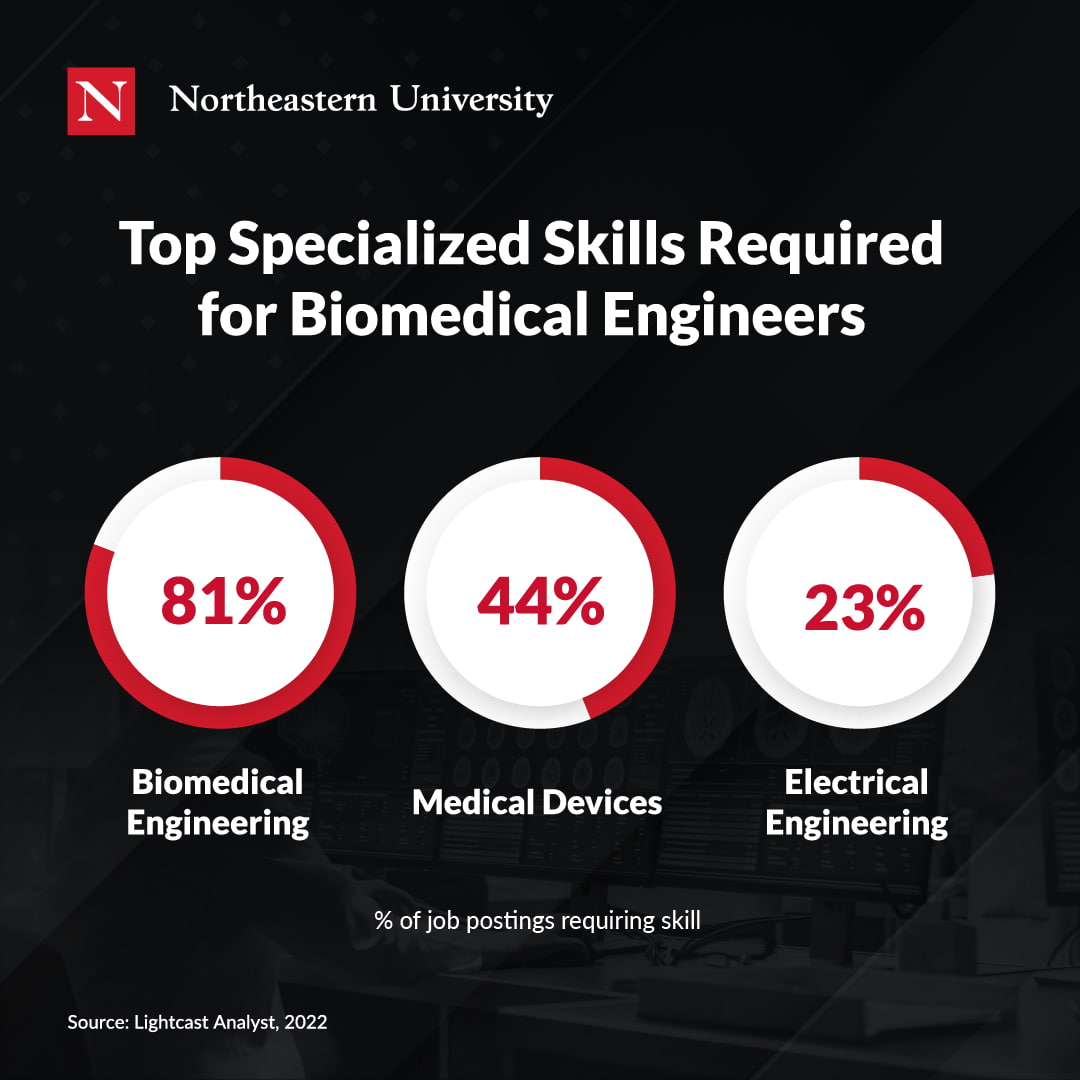
Common Skills
Common, or “soft” skills, are the personal attributes required for biomedical engineers to succeed in their position. These skills aren’t job-specific, but often promote success in interpersonal interactions with team members, or in rare cases, patients. The most commonly listed soft skills in job postings are:
- Communications
- Troubleshooting (Problem Solving)
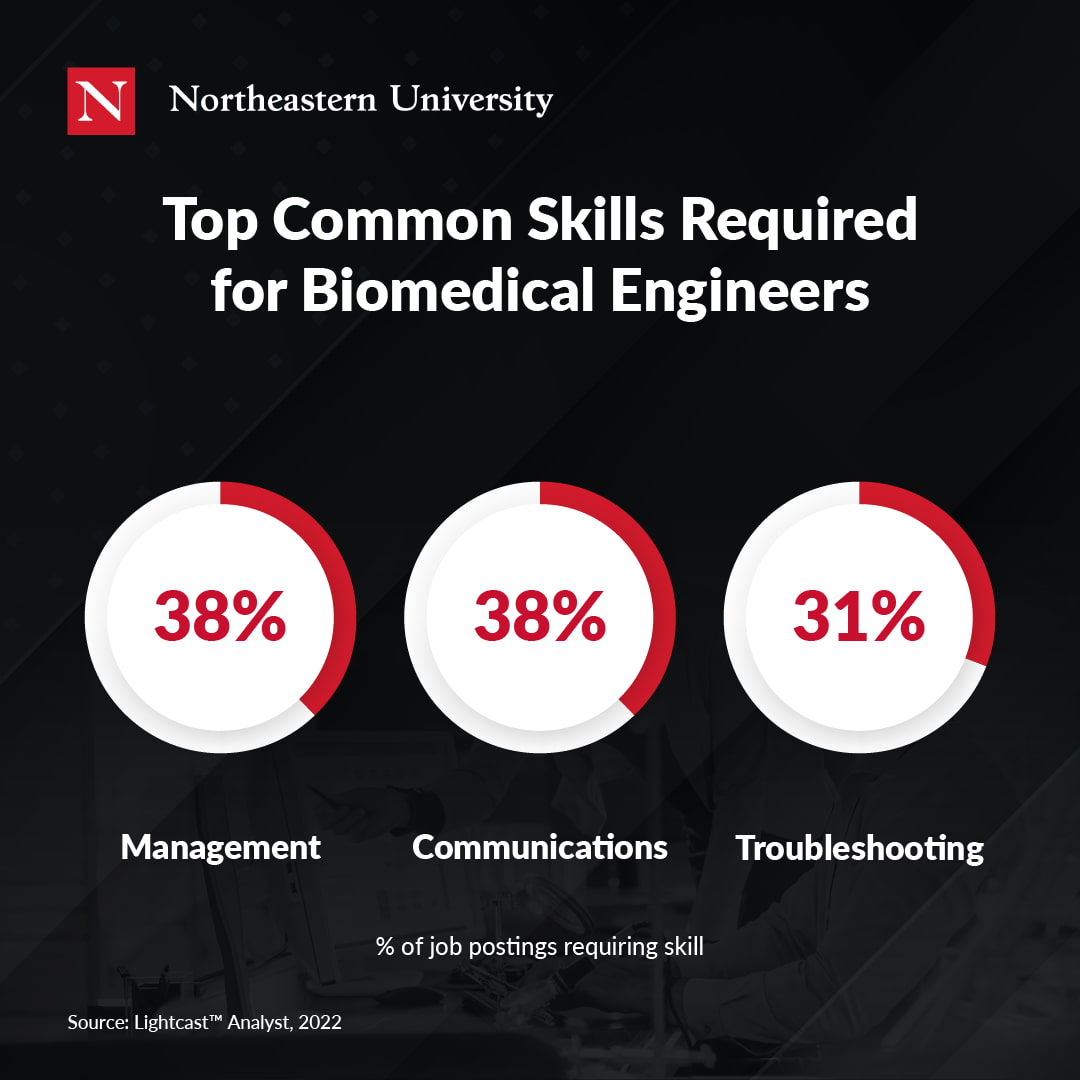
Top Qualifications
On top of any specialized skills specific to the industry, some biomedical engineering positions require certain credentials and certifications. Many of these certifications are job or industry specific, so you don’t need to pursue them unless you know they’re necessary. Nevertheless, it’s good to be aware that some jobs may require these credentials. According to a government report, some of the credentials listed in biomedical engineering job postings include:
- Engineer in Training (EIT)/Professional Engineer (PE): The EIT and PE certifications demonstrate a proficiency in the engineering field. Some positions give preference to applicants with these credentials, but in most cases biomedical engineers, particularly entry-level, don’t need this certification.
- Security Clearance: Some government positions require security clearance due to the sensitive nature of the position, but it’s not a typical requirement for biomedical engineering positions.
Jared Auclair , associate dean of the Professional Program and Graduate Affairs in the College of Science at Northeastern, recommends that prospective biomedical engineers not worry about these qualifications unless employers require them. “I wouldn’t pursue [these credentials] before I had a job,” he explains. “I would wait to see what was required for me to do that job, and then I would find a way to get those credentials, post-employment.”
Why Should You Consider Biomedical Engineering?
Biomedical engineering is a challenging career, but a rewarding one. A biomedical career typically offers several benefits, including a high average salary, job growth, and opportunities to make a difference.
High Average Salary
Biomedical engineers can obtain a wide range of salaries spanning from $24,000 to $160,000, depending on seniority, education, background, and whether the role is part time or full time. However, according to government data, the median salary of biomedical engineers is approximately $83,800 per year.
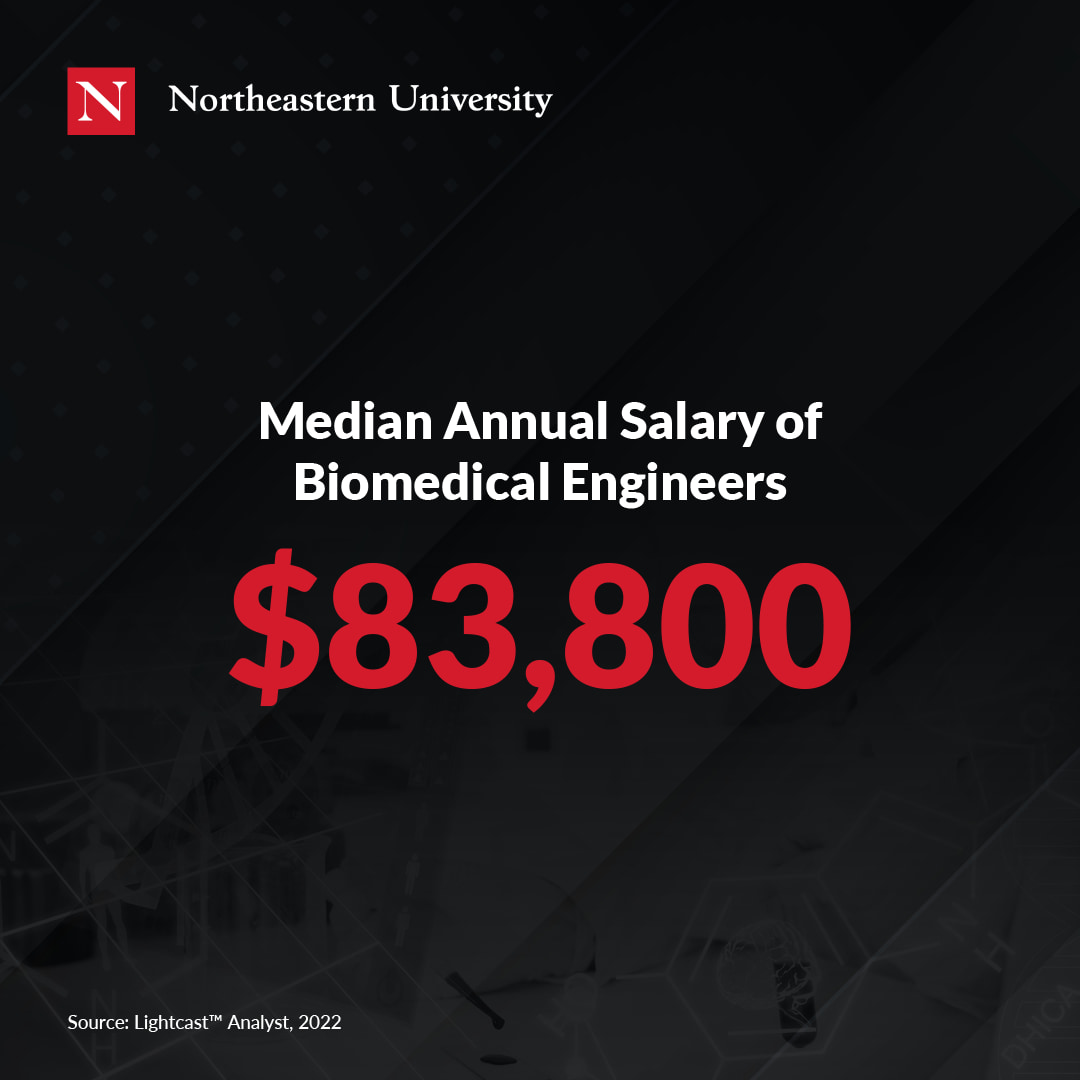
A relevant master’s degree can increase your earning potential. According to Auclair, “With a master’s degree, you can advance quickly and pretty far in a company, and the jobs pay pretty well.”
Additional data confirms that job postings requiring a master’s degree advertise a salary approximately 14 percent higher than those requiring a bachelor’s. Master’s-level biomedical engineers earn a median annual salary of nearly $95,000. Conversely, postings that require a bachelor’s degree advertise a median salary of $83,300 per year, and of those postings, 60 percent still prefer graduate-level applicants.
Growth Opportunities
Biomedical engineering is one of the most in-demand careers in the biotechnology industry . In terms of job opportunities, biomedical engineers have many choices. The healthcare industry offers a wide range of jobs for prospective biomedical engineers, including working in medical imaging, pharmaceuticals, neural engineering, mechanical engineering, and a variety of other options. Biomedical engineers can also advance their careers to management positions.
Make a Meaningful Difference
Healthcare professionals who take more of a hands-on role in patient care often receive the credit for patient recovery. While this credit is definitely well-deserved, they wouldn’t be able to provide the same quality of care without the work of biomedical engineers. The reality is that although biomedical engineers operate behind the scenes, they play an essential role in the healthcare industry.
One of biomedical engineers’ primary objectives is to improve patients’ quality of life by applying their engineering problem-solving skills to the medical field. They’re able to make a meaningful difference in others’ lives by increasing the efficiency of medical procedures through innovative technologies, or easing the diagnosis process for medical professionals by improving diagnostic technology. Individuals who are motivated to improve others’ quality of life will likely find biotechnology a rewarding career.

Take the Next Step Toward a Meaningful Career
For many, biomedical engineering is an appealing career. However, the educational requirements for higher-paying positions can be daunting. Auclair assures prospective students that pursuing an advanced degree in biotechnology is “definitely worth the investment, especially in the experiential master’s space.”
If you’re interested in developing the skills required to succeed in the biotechnology industry, consider applying for Northeastern’s Master of Science in Biotechnology program to expedite your biomedical engineering career and obtain valuable, real-world experience and in-demand skills.
Subscribe below to receive future content from the Graduate Programs Blog.
About michael boyles, related articles.

11 Data Science Careers Shaping Our Future

How Data Science is Disrupting Supply Chain Management

What Does a Data Scientist Do?
Did you know.
Advanced degree holders earn a salary an average 25% higher than bachelor's degree holders. (Economic Policy Institute, 2021)
Northeastern University Graduate Programs
Explore our 200+ industry-aligned graduate degree and certificate programs.
Most Popular:
Tips for taking online classes: 8 strategies for success, public health careers: what can you do with an mph, 7 international business careers that are in high demand, edd vs. phd in education: what’s the difference, 7 must-have skills for data analysts, in-demand biotechnology careers shaping our future, the benefits of online learning: 8 advantages of online degrees, how to write a statement of purpose for graduate school, the best of our graduate blog—right to your inbox.
Stay up to date on our latest posts and university events. Plus receive relevant career tips and grad school advice.
By providing us with your email, you agree to the terms of our Privacy Policy and Terms of Service.
Keep Reading:

The 8 Highest-Paying Master’s Degrees in 2024

Graduate School Application Tips & Advice

How To Get a Job in Emergency Management

Join Us at Northeastern’s Virtual Graduate Open House | March 5–7, 2024

How to Write a Great Engineering School Personal Statement
Find schools.
When you click on a sponsoring school or program advertised on our site, or fill out a form to request information from a sponsoring school, we may earn a commission. View our advertising disclosure for more details.
You have spent months researching and identifying the best engineering schools, studying for and completing the SATs, GRE, or other standardized tests, and filling out tedious college applications. You are on the verge of burnout when it hits you: you have to write a personal statement.
How important is it to write a great personal statement? Ask the admissions committee, and they’ll tell you that writing a personal statement is like applying for a job. Stephen J Aguilar, an assistant professor of education at USC, reported in 2020 to Inside Higher Ed that a personal statement should be less revealing and more persuasive. At its core, the personal statement needs to answer these two questions:
- Why are you applying here?
- How do your interests and experiences align with the program or the faculty you’ve identified?
However, the importance of reading and understanding the question prompts cannot be overstated. For example, the University of Iowa College of Engineering, which places 97 percent of its undergraduates in jobs post-graduation and currently has 284 master’s and doctoral students, goes one step further to differentiate personal statements from statements of purpose .
This institution wants to know in the statement of purpose , “Why is this program a good fit for you?” By contrast, the personal statement elicits answers to the question: “Who are you?” and allows applicants to explain themselves to admissions committees regarding academic achievements and life events that have shaped them and will positively influence the campus community.
That said, a personal statement is not just an essay. It has to be intelligent, engaging, typo-free, and capable of convincing admissions reviewers that you are a better fit for their program. Fret not. With lots of research and preparation, you can submit a college essay that reflects your passion and capabilities.
Read on to learn the what, the why, and the how-to of writing great personal statements to gain admission into engineering school.
How Is a Personal Statement Evaluated?
The title "personal statement" is generally synonymous with college essays. However, some admissions professionals use it to refer more specifically to written statements that explore applicants’ program readiness and intentions if admitted. The purpose of these statements for engineering school applicants is three-fold.
First, colleges want to know that they can write well, and not just from a technical perspective. Of course, grammar matters, but perhaps more important is the ability to communicate ideas.
Second, engineering schools want to know who a student is—the nuggets that are not conveyed through a conventional application or school transcripts. This is the written equivalent of the interview question “tell us about yourself” and is the applicant’s chance to share who they are, what they want to do, and how gaining admission to this program will be mutually beneficial.
Finally, colleges want to ensure applicants are familiar with and committed to the program. The best personal statements fulfill these goals, often in 700 words or less.
Does this sound like a tall order? Here are some tips for getting it right.
Six Tips for Writing a Stellar Engineering School Personal Statement
1. Do the research
It may sound simplistic, but one of the most important (and often overlooked) steps toward getting into the right school is taking the time to research a prospective engineering program, review its admissions policies and—this cannot be overstated—read and reread its application essay prompt. Candidates who don’t sufficiently answer an institution’s question or convey some misunderstanding about the prompt or its expectations are unlikely to be admitted.
Prospective students completing the Common Application should take the time to contact each engineering school they are applying to inquire about additional admissions requirements. The Princeton Review emphasizes that a personal statement should not repeat a previously discussed part of your application, nor should its information contradict another part.
2. Go deep, not broad
Personal statement prompts tend to be targeted. Engineering schools want to know what specific qualities or experiences make each student a good fit for their programs. Common inquiries include recalling a time you solved a problem, explaining why you applied, describing your academic goals and intentions, and addressing any extenuating circumstances that might have impacted your school record. Rather than offering a broad synopsis of your life, choose the experience or intent most relevant to the question and explore it in depth.
The Massachusetts Institute of Technology Graduate School offers advice for writing an in-depth personal statement for engineering schools using the “qualified match” approach. The steps include:
- Make a statement that fits the essay prompt, like “I am a dedicated and hard-working student.”
- Quantify your statement with specific details about your life. You might, for example, discuss how many hours per week you spend on school work and how you overcome any obstacles to committing that time.
- Interpret how those details make you a stronger applicant. To continue with the above example, that might include writing about the knowledge you gained during your studies, your time-management skills, your passion for learning, and your commitment to succeed despite challenges.
3. Be relevant
If a personal statement has only one goal, it is to be shown to a review committee that you are the right fit for its school. That’s why applicants to Stanford University’s Institute for Computational & Mathematical Engineering are asked to specify their personal and professional goals in their statement of purpose, as well as discuss their developments and intentions for study and life beyond their doctoral program.
Read the mission statements of each program to get a feel for what they are looking for and keep that in mind as you write. Rather than getting carried away detailing the hours you log volunteering each week, discuss experiences and activities as they relate to your academic and career goals or scientific interests. Also, be sure not to waste valuable ink rehashing information available elsewhere on your application, such as extracurricular activities or your stellar GPA.
4. Avoid gimmicks and cliches
Did you love playing with Legos as a kid? Did those plastic bricks lay the foundation for your drive to be an engineer? If so, the College of Engineering at the University of Washington suggests you are in good company, but not in a good way. Every year, the committee reads personal essays on how Legos were the building blocks of a student's career in engineering.
To stand out, engineering school applicants should avoid using cliches in their statements. Of course, setting yourself apart from other applicants is imperative, but you must do so in a meaningful and unique way. Admissions review panels have seen it all and are unlikely to be moved by creative gimmicks and attention-grabbers that do not get to the heart of what makes you a great candidate.
5. Mind your mechanics
This tip refers more to the mechanics of writing than any scientific drive, though the latter undoubtedly has a place in an engineering school personal statement. Remember when we said one of the goals of college essays is verifying applicants can communicate effectively? Applicants should consider the following elements as they prepare their outline (more on that next):
- Voice – Is your voice appropriate for the task? Is it too formal or casual? Are you using active language rather than passive and wishy-washy statements? Do you come across as academic?
- Structure – Do your ideas flow logically and support one main idea? If you are unsure where to start, know that following the reliable five-paragraph essay format is perfectly acceptable: introduction, three supporting paragraphs, and a tidy conclusion.
- Length – Engineering schools usually have a good reason for requesting personal statements with a specific word count. Those that are too short have too little to say, and those that are too long are likely to repeat the same concepts.
- Grammar – College students are expected to know and use basic grammar. Edit, edit, and then edit again.
- Completeness – Have you addressed the admissions essay prompt in full? What about any supplemental school or department-specific requests?
6. Edit, edit, edit
Writing a personal statement may seem like a herculean task, so it is tempting to push it aside when you type that final period and not look back. This is a mistake—and perhaps the biggest one you can make. Sometimes we get so caught up in our thoughts and ideas that we miss lapses in our writing, whether grammatical or contextual. To avoid this:
- Begin with an outline.
- Write the first draft.
- Write a second draft.
- Read the essay out loud.
- Review your essay again a day or two later.
- Ask parents, friends, teachers, and others to read your work.
There is never any excuse for typos, and even the slightest error can turn a committee review member off. Ask a friend or family member to review your essay for grammatical mistakes when in doubt. It may be intimidating, but the process is an excellent way to identify missing words or ideas. What's more, applicants today are blessed with the power of technology. Online tools like Grammarly are free to use and quickly catch any glaring typos.
Starting Your Engineering School Admissions Essay
One of the biggest challenges to writing a stellar college essay is simply getting started in the first place. Personal statements are, by design, personal, and that can be intimidating. Applicants also put significant pressure on themselves to write the perfect essay.
Fortunately, many colleges try to ease the burden by providing tips online. Purdue University’s Online Writing Lab offers examples of successful personal statements. Some engineering schools even post examples of successful personal statements, including MIT , Johns Hopkins University , and Cornell University . While your essay should be wholly original, these resources can guide you through creating a unique and inspirational narrative to impress admissions committees.

Aimee Hosler is a long-time journalist specializing in education and technology. She is an advocate for experiential learning among all ages and serves as the director of communications for a non-profit community makerspace. She holds a degree in journalism from California Polytechnic State University in San Luis Obispo.
Related Programs
- Electrical Engineering
- Electrical and Computer Engineering (ECE)
- Power Systems Engineering
- Electrical Engineering Specializations
- Online Master's Degrees in Electrical Engineering (EE) - MSEE, MSE
- Ten Professors to Know in Power Systems Engineering
- 25 Top Electrical Engineering Professors
- Engineering MBA
- Construction Management
- Project Management
- Engineering Management
- Online Dual MBA/MSE Programs (MS in Engineering)
- Operations Management
- Online BS and BSE Programs in Engineering Management - Bachelor's Degrees
- Online Bachelor's Degree Programs in Technological Entrepreneurship & Management
- Six Sigma Online MBA Programs
- Online Bachelor's Degrees in Project Management
- Online Bachelor's Programs in Operations Management
- Online Master's Degree Programs in Operations Management
- Online Master’s Degrees in Engineering Management
- Online Master’s Degrees in Construction Management
- Engineering Management Professors You Should Know
- Mechanical Engineering
- Online Master’s Degrees in Mechanical Engineering
- 25 Top Professors of Mechanical Engineering
- Online Bachelor's Degree Programs in Web Development
Related FAQS
- How Do I Become an Electrical Engineer?
- How Do I Become a Power Systems Engineer?
- What is Electrical Engineering?
- How Do I Become an Engineering Manager?
- Construction Management vs. Engineering Management
- How Do I Become an Engineering Project Manager?
- How Do I Become a Construction Manager?
- Master’s in Engineering Management (MEM/MSEM) vs. MBA
- How Do I Become a Mechanical Engineer?
- Any No GMAT / No GRE Online Engineering Programs?
- What is Mechanical Engineering?
- How Much Do Mechanical Engineers Make?
- Mechanical Engineering vs. Computer Science
- What Can I Do With a Mechanical Engineering Degree?
- How Long Does it Take to Earn a Master's in Engineering?
- 1. Any No GMAT / No GRE Online Engineering Programs?
- 2. Construction Management vs. Engineering Management
- 3. How Do I Become a Construction Manager?
- 4. How Do I Become a Mechanical Engineer?
- 5. How Do I Become a Power Systems Engineer?
Related Features
Heroes in engineering: a spotlight on electric vehicles.
The mass adoption of electric vehicles (EVs) depends on many of factors, but they all boil down to two things: 1) access to cost-efficient EVs, and 2) a power grid that can support them. This story delves into both.
Heroes in Engineering: A Spotlight on Robotics
A recent report by the International Data Corporation (IDC) projects that global spending on robotics and related services will exceed $135 billion by 2019, and continue to grow at an annual compound rate of about 17 percent.
Heroes in Engineering: A Spotlight on Energy Sources & Batteries
George Crabtree, senior scientist and distinguished fellow at Argonne National Laboratory, distinguished professor at the University of Illinois at Chicago, and director of the JCESR, sees energy storage research having major applications when it comes to electric vehicles (EVs) and the electric grid.
National Robotics Week 2022: An Expert's Guide
The 12th annual National Robotics Week (RoboWeek) takes place April 2-10, 2022. Established by Congress in 2010, this tech-focused week is about demonstrating the positive societal impacts of robotic technologies, and inspiring students of all ages to pursue careers related to Science, Technology, Engineering, and Math (STEM).
Take Aim: The Five Hottest Problems in Electrical Engineering
Electrical engineering is a rich field with challenges for tomorrow’s engineers. Sitting at one of the most interesting crossroads of science and technology, its territory stretches across microelectronics, energy systems, telecommunications, and robotics. Much overlap exists between its different research areas, and that overlap is mimicked in many of the field’s largest potential breakthroughs.
Duke Pratt Engineering Essay: Why biomedical engineering at Duke?
lapsi95 4 / 10 Dec 30, 2009 #1 Hey guys, Please critique this essay. I really need to make sure my ideas flow and make sense. Thanks in advance! ---------------------------------------------------------------------- ------------ If you are applying to the Pratt School of Engineering, please discuss why you want to study engineering and why you would like to study at Duke. From the time I learned the basics of the organ systems of the body in elementary school to my study of Einstein's theories of relativity and the Schrödinger equation earlier this year, I have been captivated by the sciences. There is little more satisfying to me than quenching my intellectual and scientific curiosity. Thus, in pursuing an undergraduate degree, the choice came down to a pure science or engineering. Einstein distinguished science from engineering when he explained, "Scientists investigate that which already is; engineers create that which has never been." I experienced this first hand in numerous Science Olympiad projects since seventh grade, namely constructing robots, building balsawood bridges, designing mousetrap cars, and experimenting with rockets. One year, I led a group of three in building a 1-liter plastic bottle rocket that would carry an egg afloat safely for the longest time. We spent months sitting around a whiteboard, sketching ideas and testing models. Launches were especially thrilling, though Murphy's Law held true. After each nosedive, we returned to the board. Even after we earned a gold medal at the competition, we continued the project into the summer for the sheer exhilaration of exercising our minds. The joy derived from brainstorming innovative ideas and building something of our own shifted the balance in favor of engineering. The engineering projects required not only an understanding of the physics related to a certain task, but also the ability to apply that knowledge toward creating our own solution. These engineering projects were more like art done for pleasure than an assignment for competition. While I was unsure of my undergraduate pursuit for a long time, I have been determined to attend medical school for a long time. My desire to study medicine has been driven by the desire to tackle challenging diseases. Through my knowledge of the medical field, I realized that combating diseases requires not only an understanding of the biology, but advancement in diagnosis and treatment using applied sciences and innovative ideas. This is essentially the undertaking of engineers. Specifically, biomedical engineering is required, for example, to design the gene delivery system utilized to replace the mutated DNA in cells with properly functioning alleles in order to cure hereditary conditions like muscular dystrophy. Tissue engineering seeks to grow artificial organs by implanting and growing cells onto scaffolds of carbon nanotubes. My desire to pursue a degree in biomedical engineering before attending medical school is appropriate, because the experience and knowledge I obtain will be invaluable in my approach to medical research, development, diagnosis, and treatment. I will be able to see each obstacle from various perspectives and combine the distinct studies towards a solution. Duke is the most rewarding setting to further my goals. The Pratt School of Engineering offers one of the best programs in biomedical engineering. The research and biomedical advancements at Duke are especially groundbreaking, such as the development of a new nano-scale chemotherapy delivery system, a tiny three-dimensional ultrasound probe, and autonomous robots to detect shrapnel and biopsy cancerous masses. Educational and research opportunities at Duke provide valuable experiences. However, in choosing a branch of study, I did not want to limit myself to just medicine. In fact, some of my favorite classes in high school were AP Economics, AP U.S. History, and Physics. Duke offers strong programs, enthusiastic professors, and intellectual challenges in all branches of study. As an engineering student at Duke, I can expand my horizons and pursue a double major or certificate in another field. Duke does not force me to limit myself intellectually nor academically, and the educational experience will give me an advantage in gaining admission into a top medical school.


CENG Connection
Today’s news, tomorrow’s impact.
- Biomedical Engineering Students Embark on Quest to Modernize Childbirth Tools

- March 26, 2024
- Biomedical Clinical Engineering Partnership , Biomedical Engineering , Equity , Sierra Vista Regional Medical Center
In their summer clinical immersion at a hospital’s maternity ward, two biomedical engineering students encountered the complex realities of childbirth, including the use of tools for newborns in distress that some consider archaic at best.
The students became determined to develop a device that provides a safer alternative to forceps and vacuums, aiming to enhance the safety of mothers and newborns while offering essential support to doctors.
“It was shocking to learn that the tools they use in assisted childbirths have not changed since the 1500s,” said Riley Gordon who participated in the Biomedical Clinical Engineering Partnership (BiCEP) program with teammate Kayla Lovejoy.
After collecting feedback from their clinical mentors at Sierra Vista Regional Medical Center, Gordon and Lovejoy spent three weeks developing a prototype. Their design fused elements of a sling and shoehorn, with the goal of alleviating pressure on the baby’s head, gently constricting the shoulders and aiding delivery by assisting in the baby’s extraction.
“Although assisted deliveries account for only 3% of births, the sheer volume of births worldwide translates to millions of babies born, and we knew there had to be a better way to help,” Gordon said.
In the fall, a new cohort of students launched their senior project, building on the foundational work of Gordon and Lovejoy with the goal of inspiring the medical community to embrace modernized devices like their own.

Speedy delivery
During a recent Tuesday session in Professor Michael Whitt’s senior project class, biomedical engineering students Maddie Mumford, Brittany Trinh, Jenna Eissmann and Rachel Rowe gathered around a table, conducting tests with a baby doll and giant plastic egg.
Eissmann and Mumford positioned the baby inside the egg that simulated a uterus while carefully situating their sling-like device beneath the baby. Mumford held the egg steady as Eissmann gripped the ergonomically designed handles of the device and quickly pulled.
“2.91 seconds!” shouted Rowe, logging the time on her laptop during the pretend delivery as Trinh observed, highlighting the device’s critical speed in emergencies and its durability under significant pressure and pulling.
After two rounds of testing, they achieved even faster results.
Mumford, Trinh, Eissmann and Rowe opted to build upon the summer groundwork laid by the BiCEP students for their senior project, driven by the potential to address a significant gap in women’s health.
After consulting with obstetricians-gynecologists, they identified a crucial need for a device designed to manage shoulder dystocia – a condition in which a baby’s shoulders become lodged during vaginal delivery, necessitating reliance on 25-30 manual maneuvers by doctors.
“Our device aims to standardize care,” said Eissmann, underscoring the importance of consistent management for shoulder dystocia. Mumford highlighted an added advantage: the device’s potential to prevent common infant injuries, such as clavicle fractures and brachial plexus damage, and reduce the need for C-sections.
Following the identification of the project’s goals, the team faced challenges that included getting clinical delivery data, understanding the anatomy of the pelvis during childbirth and catering to the distinct needs of three key stakeholders: the doctor, the mother and the infant.
“This project was a great lesson in trial and error,” Rowe said. “I learned not to let setbacks get me down but to use them as building blocks for growth.”

Memorable moments
As the project progressed, the team grew closer, united by their shared passion and often finding reasons to smile together.
Rowe reminisced about their first foray into the machine shop when they started manufacturing their device. “None of us knew what we were doing, but we figured it out,” she said, reflecting on the experience. “It felt more like an adventure than work.”
Eissmann remembered walking around campus carrying the baby doll and oversized egg. “Not my best look,” she said with a laugh.
Once, while on campus, Lovejoy and Gordon noticed the doll and promptly caught up with the team now carrying on their project. “I’d know that child anywhere,” said Gordon, chuckling.
Gordon and Eissmann also discussed their individual experiences preparing the gel that replicated uterine tissue, a procedure involving heating it in an oven before carefully pouring it into the egg to line the interior for testing purposes.
As they reflected on the unconventional nature of their work, Eissmann and Mumford shared their perspectives.
Eissmann likened herself to a character from a popular Disney film. “I felt like Sid from ‘Toy Story’ at times,” she said, drawing a humorous comparison to the movie’s infamous toy tinkerer.
Meanwhile, Mumford relished the opportunity to delve into the design and creative aspects of engineering.
“Until now, it’s mostly been theoretical,” she said, “but this project allowed for a fun blend of analytical and critical thinking. Adding to her thoughts, she emphasized the team’s resilience. “We faced and overcame challenges, demonstrating strong teamwork throughout the process.”
Whitt commended the device developed by the two teams for its potential.
“Our students are remarkably intelligent and inventive,” he said. “I’m eager to see us pursue patents for more of these innovative ideas.”
By Emily Slater
Photo of the Week

Post Categories
- Awards & Recognition
- College Update
- Dean's Advisory Council
- Faculty Highlights
- Faculty/Staff News
- Giving For Impact
- Justice, Equity, Diversity & Inclusion
- Research Report
- Strategic Plan
- Student Opportunities
- Upcoming Events
Trending Posts
- Cal Poly Engineering Named 5th Best in Nation in 2024 U.S. News & World Report Rankings
- Cal Poly College of Engineering Rises to 6th Best in Nation in 2023 U.S. News & World Report Rankings
- Lending a Hand
- Net to Table: Goalie and Engineering Student Mackenzie Samuel Takes Center Stage in Local Ad Campaign
Trending Tags
Contributor form, submission guidelines, post archives.
What are your chances of acceptance?
Calculate for all schools, your chance of acceptance.
Your chancing factors
Extracurriculars.
A 200+ Word “Why Major” Essay Example and Analysis
This article was written based on the information and opinions presented by Hale Jaeger in a CollegeVine livestream. You can watch the full livestream for more info.
What’s Covered:
250 word essay example, start with an anecdote, but avoid cliches, include smooth transitions and be specific, do your research and avoid overusing phrases, be concise and emphasize school fit.
In this article, we will focus on a prompt from Duke University that is specific to the Pratt School of Engineering.
If you are applying to the Pratt School of Engineering as a first year applicant, please discuss why you want to study engineering and why you would like to study at Duke. (250 words).
As opposed to a 100 word essay, 250 words gives you a little more space to write about your interests. Another thing to note about this prompt is that it is asking two questions: “why do you want to study at this school in particular?” and “why do you want to study engineering?”
The extra words give you enough room to talk about the type of engineering you’re interested in, Duke specific resources, and how you grew your interest in engineering over time. Here we will go through an example of a response to this prompt. Then for each paragraph, we’ll analyze what the essay does well and where it could be improved.
“One Christmas morning when I was nine, I opened a snap circuit set for my grandmother. Although I had always loved math and science. I didn’t realize my passion for engineering until I spent the rest of winter break creating different circuits to power various lights, alarms, and sensors. Even after I outgrew the toy, I kept the set in my bedroom at home and knew I wanted to study engineering.
Later in high school biology class, I learned that engineering didn’t only apply to circuits, but also to medical devices that could improve people’s quality of life. Biomedical engineering allows me to pursue my academic passions and help people at the same time. Just as biology and engineering interact in biomedical engineering, I am fascinated by interdisciplinary research in my chosen career path.
Duke offers unmatched resources, such as DuHatch and The Foundry, that will enrich my engineering education and help me practice creative problem-solving skills. The emphasis on entrepreneurship within these resources will also help me to make a helpful product. Duke’s Bass Connections program also interests me; I firmly believe that the most creative and necessary problem solving comes by bringing people together from different backgrounds.
Through this program, I can use my engineering education to solve complicated societal problems, such as creating sustainable surgical tools for low income countries. Along the way I can learn alongside experts in the field. Duke’s openness and collaborative culture span across its academic disciplines, making Duke the best place for me to grow both as an engineer and as a social advocate.”
“One Christmas morning when I was nine, I opened a snap circuit set for my grandmother. Although I had always loved math and science. I didn’t realize my passion for engineering until I spent the rest of winter break creating different circuits to power various lights, alarms, and sensors. Even after I outgrew the toy, I kept the set in my bedroom at home and knew I wanted to study engineering.”
This first paragraph does something excellent, which is it starts with an anecdote. In the introductory anecdote, the author mentions specific things like alarms, lights, and sensors, so the reader can really visualize what’s happening.
Another strength of this excerpt is that the anecdote moves through time very quickly. It starts with Christmas morning, progresses to the rest of winter break, and then finally ends by discussing after the author outgrew the toy. That temporal growth is good because it gets a reader in and out of the anecdote quickly while feeling nostalgic. It makes the reader feel connected to the writer.
One weakness of this paragraph, however, is that the last line is a little too much; it hits you over the head with “I want to study engineering.” Admissions officers know that one experience from when you were nine years old may be too much to ascribe your passion for engineering to, so this doesn’t feel believable. Instead, this instance can be framed as a spark that ignited your passion for engineering or made you interested in learning more about engineering.
“Later in high school biology class, I learned that engineering didn’t only apply to circuits, but also to medical devices that could improve people’s quality of life. Biomedical engineering allows me to pursue my academic passions and help people at the same time. Just as biology and engineering interact in biomedical engineering, I am fascinated by interdisciplinary research in my chosen career path.”
This paragraph does a really good job of transitioning from the anecdote to the writer’s specific and current interest in biomedical engineering. However, there are a few drawbacks from this excerpt.
One weakness from this paragraph is that helping people is a trope that is really overused when talking about an interest in health and healthcare. You can help people in a variety of careers, so it is a bit naive to say that the only way you can help others is by pursuing a particular path. Instead, you want to make the essay sound more genuine by displaying the heart of your passion. What particular types of medical devices and interdisciplinary research is the student interested in? Which intersection of fields is the most interesting to them and why? Giving more details or even specific adjectives here would help the essay sound more informed and robust.
Another aspect of this essay that could be improved is that the author mentions their ideal career path but doesn’t elaborate on this beyond biomedical engineering as a field of study. There are many different paths you can take after studying biomedical engineering. You could go into the research and development of products, or medicine, or the research behind patient-facing studies. What about your ideal career makes you excited to pursue that given field or major?
”Duke offers unmatched resources, such as DuHatch and The Foundry, that will enrich my engineering education and help me practice creative problem-solving skills. The emphasis on entrepreneurship within these resources will also help me to make a helpful product. Duke’s Bass Connections program also interests me; I firmly believe that the most creative and necessary problem solving comes by bringing people together from different backgrounds.”
This paragraph takes on the question in the second part of the prompt by explaining explicitly why they want to study biomedical engineering at Duke. One thing this essay does very well is that it brings up Duke specific resources and opportunities – DuHatch, The Foundry, and Bass Connections. They also mention the spirit of entrepreneurship that is ingrained in the teaching at Duke and how this is important to the design process in engineering. By connecting to Duke’s academic philosophy, this shows the admissions officers that this student not only did their research but also shares values with the school itself.
One of this paragraph’s weaknesses, however, is that the student mentions that “Duke offers unmatched resources, which is quite cliche and generic. Duke already knows that they are well regarded in the engineering field, so this is a waste of words in this essay.
Another aspect of the essay that could be improved here is the vague and undeveloped idea of creative problem solving skills that would be honed by attending Duke. The author uses the phrase “problem solving” a couple of times and wastes some space on two transition sentences. Overusing this phrase detracts from the power of the language and weakens the general cadence of your essay.
“Through this program, I can use my engineering education to solve complicated societal problems, such as creating sustainable surgical tools for low income countries. Along the way I can learn alongside experts in the field. Duke’s openness and collaborative culture span across its academic disciplines, making Duke the best place for me to grow both as an engineer and as a social advocate.”
This final paragraph is a strong conclusion because it is succinct and ties together all of the previous paragraphs. It makes the essay feel complete by the time the reader reaches the end. Combining engineering and social advocacy is also a great thought. It is in line with the rest of the essay and shows that this student is person-minded and not machine-minded. It demonstrates a dedication to community, which is something that Duke values as well.
However, if the author had incorporated these ideas of social advocacy earlier in the essay, this would have emphasized their fit with Duke and made the essay even stronger. Additionally, the specific idea of creating sustainable surgical tools for low income countries is very unique and would have been more powerful if it had been mentioned earlier; here it simply feels like an afterthought.
The conclusion also includes awkward wording in some of the phrases like “Duke’s openness and collaborative culture,” which could be reworded as “Duke’s open and collaborative culture.” By reducing some of the awkward phrasing, the author would have had some more space to play around with their specific interests in biomedical engineering and Duke’s programs.
Is Your “Why Major” Essay Strong Enough?
Essays account for around 25% of your admissions decision, as they’re your chance to humanize your application and set yourself apart from other applicants with strong profiles.
The “Why Major” essay is especially important, as it allows you to reflect on your unique interests and fit with the school. Your supplement needs to demonstrate your interest in the major and paint a picture of how you’ll contribute to their program.
To understand if your essay is strong enough, we recommend using our Peer Essay Review tool , where you can get a free review of your essay from another student. You can also improve your own writing skills by reviewing other students’ essays. This tool will make it easier to understand your essay’s strengths and weaknesses, and help you make your writing even more compelling.
Related CollegeVine Blog Posts

Chien-Chi Lin inducted into the 2024 Class of the AIMBE College of Fellows - Biomedical Engineering - Purdue University

Chien-Chi Lin inducted into the 2024 Class of the AIMBE College of Fellows

The American Institute for Medical and Biological Engineering ( AIMBE ) has announced the induction of Chien-Chi Lin, a Purdue University professor of biomedical engineering in Indianapolis, to its College of Fellows.
Election to the AIMBE College of Fellows is among the highest professional distinctions accorded to medical and biological engineers, comprised of the top 2% of engineers in these fields. College membership honors those who have made outstanding contributions to "engineering and medicine research, practice or education” and to "the pioneering of new and developing fields of technology, making major advancements in traditional fields of medical and biological engineering or developing/implementing innovative approaches to bioengineering education."
Professor Lin was nominated, reviewed and elected by peers and members of the College of Fellows “for innovative development of orthogonally crosslinked hydrogel biomaterials to probe cell-biomaterial interactions and to guide pancreatic cell fate processes.”
A formal induction ceremony was held during the AIMBE Annual Event at the Renaissance Arlington Capital View Hotel in Arlington, Virginia on March 25, 2024. Lin was inducted along with 162 colleagues who make up the AIMBE College of Fellows Class of 2024.
While most AIMBE Fellows hail from the United States, the College of Fellows has inducted Fellows representing more than 30 countries. AIMBE Fellows are employed in academia, industry, clinical practice and government.
AIMBE Fellows are among the most distinguished medical and biological engineers including 3 Nobel Prize laureates and 22 Presidential Medal of Science and/or Technology and Innovation awardees. Additionally, 214 Fellows have been inducted to the National Academy of Engineering, 117 inducted to the National Academy of Medicine and 48 inducted to the National Academy of Sciences.
About AIMBE
AIMBE is the authoritative voice and advocate for the value of medical and biological engineering to society. AIMBE’s mission is to recognize excellence, advance public understanding and accelerate medical and biological innovation. No other organization brings together academic, industry, government and scientific societies to form a highly influential community advancing medical and biological engineering. AIMBE’s mission drives advocacy initiatives into action on Capitol Hill and beyond.
Source : American Institute for Medical and Biological Engineering
Get the latest news and stories from Tufts delivered right to your inbox.
Most popular.
- Activism & Social Justice
- Animal Health & Medicine
- Arts & Humanities
- Business & Economics
- Campus Life
- Climate & Sustainability
- Food & Nutrition
- Global Affairs
- Points of View
- Politics & Voting
- Science & Technology
- Alzheimer’s Disease
- Artificial Intelligence
- Biomedical Science
- Cellular Agriculture
- Cognitive Science
- Computer Science
- Cybersecurity
- Entrepreneurship
- Farming & Agriculture
- Film & Media
- Health Care
- Heart Disease
- Humanitarian Aid
- Immigration
- Infectious Disease
- Life Science
- Lyme Disease
- Mental Health
- Neuroscience
- Oral Health
- Performing Arts
- Public Health
- University News
- Urban Planning
- Visual Arts
- Youth Voting
- Cummings School of Veterinary Medicine
- Friedman School of Nutrition Science and Policy
- The Fletcher School
- Graduate School of Arts and Sciences
- Graduate School of Biomedical Sciences
- Jean Mayer USDA Human Nutrition Research Center on Aging
- Jonathan M. Tisch College of Civic Life
- School of Arts and Sciences
- School of Dental Medicine
- School of Engineering
- School of Medicine
- School of the Museum of Fine Arts
- University College
- Australia & Oceania
- Canada, Mexico, & Caribbean
- Central & South America
- Middle East

“It was clear from evaluating this year’s applications that we have admitted an impressive group of students who want to learn with and from their peers, and who are eager to use their education to positively transform the world,” said JT Duck. Photo: Jenna Schad
Academic Achievement and ‘Intellectual Curiosity’ Shared by Admitted Class of 2028
The students admitted to the undergraduate class are described as civic-minded, entrepreneurial, and committed to collaboration
Regular admissions decisions for the Class of 2028 were released March 22, representing a 10% acceptance rate, on par with last year.
Students selected from the applicant pool , which exceeded 34,000, are “civic-minded, entrepreneurial, and deeply committed to collaborating with others,” said JT Duck, dean of admissions for the School of Arts and Sciences and the School of Engineering.
Duck noted that first-year applicants began high school in the fall of 2020, when virtual or hybrid modalities were required as part of COVID-19 health precautions.
The pandemic went on to have a challenging ripple effect on their high school experience by limiting access to extracurricular activities and the students’ ability to get to know their classmates outside of Zoom, and by impacting their mental health, said Duck.
“But the resilience that students showed us, as they navigated these limitations, was remarkable,” he said. “The class we have admitted has a deep appreciation for learning and exploration.”
In line with the mission of Tufts, the Office of Admissions looks for strong academic records and intellectual curiosity. Also of interest are students who show promise in becoming active citizens of the world, and who are likely—as reflected in their experiences and interests in learning across differences—to have a profound impact on one another.
Through their essays, students offered a window onto their lives. They shared what excited them intellectually, the ways in which they contributed to building an inclusive and collaborative environment in their schools, and how their communities shaped them, said Duck.
“It was clear from evaluating this year’s applications that we have admitted an impressive group of students who want to learn with and from their peers, and who are eager to use their education to positively transform the world,” said Duck.
Highlights of the Admitted Class of 2028
Women comprise 56% of the class and men 41%, and 3% identify as non-binary or genderqueer, or preferred not to specify a gender identity. Women also make up 50% of students admitted to the School of Engineering.
Of those admitted from high schools with class rank, 92% are ranked in the top 10% of their class.
Of all admitted students, 55% attend public high schools or public charter high schools, with the remainder attending independent schools, religiously affiliated schools, or home schools. They come from more than 1,750 high schools, of which more than 350 have not been represented in an admitted student cohort in the past five years, if ever.
30 students were admitted via the Questbridge Match process in December, and more than 150 Questbridge-affiliated students were admitted in total. Altogether, admitted students worked with more than 90 different college-access organizations that support low-income students on their paths to college.
Students who are among the first generation in their family to attend college account for 11% of the class, and 36% of admitted students speak a language other than, or in addition to, English at home.
The class represents all 50 states, Washington D.C., and Puerto Rico. Of students from the United States, 29% are from New England; 31% from the Mid-Atlantic; 17% from the West; 15% from the South and Southwest; and 6% from the Midwest.
80 students are residents of Tufts’ host communities (Medford, Somerville, Boston, and Grafton), and include students affiliated with local college-access organizations such as Boston Chinatown Neighborhood Center, Bottom Line, Breakthrough Greater Boston, Minds Matter Boston, SquashBusters, the Steppingstone Foundation, and Summer Search.
Of all admitted students, more than 400 are foreign nationals, representing 100-plus citizenships. The most represented countries are China, India, South Korea, Canada, Brazil, United Kingdom, Greece, Turkey, Australia, Japan, Thailand, Argentina, Rwanda, and Mexico.
Over two dozen students were admitted from seven of the United World College high schools around the world. In addition, international students worked with many different college access organizations, including the Tanzania Student Achievement Fund ( TanSAF ), Young Achievers Foundation Ghana , Sutton Trust , EdUSA , and Bridge2Rwanda , among several others.
More than 800 students applied to Tisch College of Civic Life’s Civic Semester program, taking place in Urubamba, Peru, and Chiang Mai, Thailand. Offers of admission were made to students who applied directly to the program, with the expectation that 24 students will enroll this fall.
Incoming undergraduates indicated their top areas of academic interest as biology, international relations, computer science, economics, biomedical engineering, mechanical engineering, political science, interdisciplinary art, and psychology.
Tufts is in the fourth year of a six-year SAT/ACT test-optional pilot. Similar to previous years, about 50% of applicants, and 60% of admitted students, submitted scores for consideration.
A small percentage of the applicant pool has been offered a place on the waitlist. The admissions office anticipates admitting some students from the waitlist in early May, depending on available space in the first-year class.
In April, the Tufts undergraduate admissions team will host three in-person Jumbo Days and a series of virtual events for admitted students called Jumbo Month. Admitted students have until May 1 to confirm their enrollment plans.

Early Impressions of the Students Admitted to the Tufts Undergraduate Class of 2027

Victor Vazquez’s Quest for Clean Energy

The Dorms (and Rules) Have Changed, But Roommates Remain Key to Student Life
College of Engineering
Blackwell receives nih grant to explore gender disparities in substance use disorders.
Written by Jackson Fischer

Kim "Avrama" Blackwell , professor and department executive officer of the Roy J. Carver Department of Biomedical Engineering, was recently awarded a $2.35 million grant from the National Institutes of Health to advance her research on the correlation between substance abuse and female sex hormones.
Substance use disorders affect approximately 15% of the population, with gender disparities influencing all stages of the cycle. Research has shown that women often use drugs differently, respond to drugs differently, and are more susceptible to craving and relapse, which are key phases in the addiction cycle.
Blackwell's study aims to explore the role of female sex hormones in shaping gender differences in the onset of substance use disorders. Specifically, her research will concentrate on discovering neural mechanisms whereby female sex hormones influence memory storage and drug taking.
The U.S. Department of Health and Human Services recently awarded funding for the study called "Estradiol Signaling Pathways Mediating Sex Differences in Striatal Synaptic Plasticity." The agency awarded $608,662 for year one of what is expected to be a four-year $2.35 million study.
The study will use mouse models to demonstrate how the female sex hormone estradiol interacts with cocaine, altering the memory storage in brain cells in the dorsal striatum—a vital component of the motor and reward systems.
Blackwell, who joined the BME department in 2023, serves as the principal investigator for the study. In addition to her role in the BME department, Blackwell is an affiliate with the Iowa Neuroscience Institute and a member of the Interdisciplinary Graduate Program in Neuroscience.
Blackwell will collaborate with Ted Abel, director of the Iowa Neuroscience Institute and department executive officer of neuroscience and pharmacology, and Ryan LaLumiere, professor and director of graduate studies in psychology and brain sciences.
According to Blackwell, the ultimate goal of her research is to uncover underlying gender-based behavioral differences and to identify strategies for enhancing substance abuse interventions tailored to females.

IMAGES
VIDEO
COMMENTS
Biomedical engineers work on many different things. They design medical devices like artificial organs, prosthetics, and medical equipment. They also create software to run medical equipment or to analyze medical research data. They often work in labs, hospitals, or research facilities. Their work helps doctors and nurses do their jobs better.
Michelle has career goals of pursuing a Ph.D and becoming a research scientist in neural engineering. If you have any questions, please feel free to reach out to the engineering ambassador team at [email protected]! The Walter Scott, Jr. College of Engineering at CSU engages water, health, energy, and environmental challenges through ...
Biomedical engineering allows me to pursue my academic passions and help people at the same time. ... and in college-essay-writing, specificity is key. In the first paragraph, there's a smooth yet concise transition from a general childhood fascination with engineering to a more mature and specialized field of interest. We learn more and more ...
Biomedical engineers apply their expertise in these areas to solve problems related to medicine and healthcare, developing new technologies to understand, diagnose, and treat disease. Biomedical engineering is a broad and growing field that encompasses everything from surgical robotics and prosthetics to drug delivery systems and artificial organs.
To make your essay stand out, consider focusing on a few key aspects: 1. Personal Connection: Explain how your own experiences or interests have led you to pursue a biomedical engineering major. This could be a family member's health issue, a personal passion for healthcare, or an inspiring experience like an internship or biomedical-related ...
Biomedical Engineering is the application of engineered products that advance information in biology, engineering, and medical purposes, and improves human wellbeing through interdisciplinary exercises that incorporate the designing sciences with the biomedical sciences and clinical practice. It incorporates: The education of new information ...
Analysis This student does a great job of sharing how their interest in biomedical engineering developed. They begin the essay with an anecdote, which is more engaging and personal than simply stating "I want to study X major because…" and then smoothly take us into the present, and show how their understanding of the field has become more sophisticated over time.
10 Works Cited. Open Document. Biomedical engineering, also known as "bioengineering", is a branch of engineering that combines the design and problem solving techniques of engineering with biological and medical sciences to improve health-related and medical problems. Bioengineers have made many positive changes in many lives today.
Biomedical engineering explained. Biomedical engineering is the application of engineering principles to solve health and health care problems. Using their knowledge of engineering, viology, and health care, biomedical engineers design medical equipment and processes that improve human health outcomes. Common examples of biomedical equipment ...
In general, admissions departments require applicants to hold a B.S. degree from an accredited college or university in one of the following fields: bioengineering, computer science, life sciences, electrical engineering, or physics. Earning a master's takes one to two years and qualifies students to secure various research and supervisory ...
College Essay On Biomedical Engineering. Decent Essays. 485 Words. 2 Pages. Open Document. When I finish school I want to go to college and study to become a biomedical engineer. Biomedical engineers analyze and design solutions to problems in biology and medicine. The overall goal is to improve the quality and effectiveness of patient care.
College Essay On Biomedical Engineering. college and study to become a biomedical engineer. Biomedical engineers analyze and design solutions to problems in biology and medicine. The overall goal is to improve the quality and effectiveness of patient care. However, I have to have bachelor's degree in biomedical engineering.
Biomedical Engineering. If you're the curious and caring kind, a we-can-make-something-to-fix-that tinkerer, this is the place for you. In our undergraduate Biomedical Engineering program, you'll discover how engineering principles can be applied to living systems and how to improve human health by developing advanced medical devices and ...
The first step to becoming a biomedical engineer is fulfilling the educational requirements of the role. Biomedical engineers typically need at least a bachelor's in life sciences, biotechnology, or engineering. Many, however, continue their education by pursuing a graduate or doctoral degree as well. According to government data, almost 71 ...
Biomedical Engineering Biomedical engineering, also called bioengineering, is the application of engineering principles to the fields of biology and health care. Bioengineers work with many people in many different fields such as: doctors, therapists, and researchers to develop systems, equipment and devices in order to solve clinical problems.
Introduction. Biomedical Engineering, as a discipline, involves the application of engineering and life science principles to delve into the biological aspects of animal and human life. Its roots can be traced back to the post-1945 era, marked by technological breakthroughs enabling the infusion of engineering principles into the realm of biology.
Biomedical Engineering Application Essay Sample. Why medical Engineering? Biomedical Engineering combines my core academic interests of Engineering and Medicine,and my philosophical values of wanting to undertake a career that can apply my expertise to serve humanity on a mass scale. Engineering, more generally and Electronics in particular ...
The Massachusetts Institute of Technology Graduate School offers advice for writing an in-depth personal statement for engineering schools using the "qualified match" approach. The steps include: Make a statement that fits the essay prompt, like "I am a dedicated and hard-working student.". Quantify your statement with specific details ...
Application Essay: Biomedical Engineering Course at AIT From a young age, I have always been looking for ways to achieve my goals. Being aware that every new skill I learn opens the door to a new me is exciting. In my community, going to a university is among the boxes one must tick as done and dusted from their checklist. I
The research and biomedical advancements at Duke are especially groundbreaking, such as the development of a new nano-scale chemotherapy delivery system, a tiny three-dimensional ultrasound probe, and autonomous robots to detect shrapnel and biopsy cancerous masses. Educational and research opportunities at Duke provide valuable experiences.
Biomedical Engineering Career Essay. I knew that I wanted to be a biomedical engineer when I started my junior year of high school. Biomedical engineering is using the concepts of biology and design to improve or create products in the medical field.…. 738 Words. 3 Pages.
Biomedical engineering students, from left, Rachel Rowe Brittany Trinh, Jenna Eissmann and Maddie Mumford pose with their baby doll in a giant egg that simulates a uterus. The senior project team enhanced the prototype of an assisted birth device originally developed by participants of the BiCEP program, Riley Gordon and Kayla Lovejoy. March 26 ...
College Admissions Essay: My Interest In Biomedical Engineering. Decent Essays. 469 Words. 2 Pages. Open Document. My interest for my academic future leans toward the study of biomedical. engineering. My tenure in high school is what initially led to my choice in pursuing this. profession.
Essay On Biomedical Engineering. 933 Words2 Pages. The greatest innovations that will improve and help save lives starts with a field that integrates the principles of engineering into medical uses. Biomedical engineers produce the modern technologies that medical professionals use today. They usually have four to six year college degrees, make ...
The "Why Major" essay is especially important, as it allows you to reflect on your unique interests and fit with the school. Your supplement needs to demonstrate your interest in the major and paint a picture of how you'll contribute to their program. To understand if your essay is strong enough, we recommend using our Peer Essay Review ...
March 27, 2024. Lin Han, PhD, Professor, and Kara Spiller, PhD, URBN Professor of Biomedical Innovation, both in the School of Biomedical Engineering, Science and Health Systems, were elected to the 2024 Class of the American Institute for Medical and Biological Engineering (AIMBE) College of Fellows.
The American Institute for Medical and Biological Engineering has announced the induction of Chien-Chi Lin, a Purdue University professor of biomedical engineering in Indianapolis, to its College of Fellows.Election to the AIMBE College of Fellows is among the highest professional distinctions accorded to medical and biological engineers, comprised of the top 2% of engineers in these fields.
A team of researchers from Columbia University Irving Medical Center (CUIMC) and Columbia Engineering has been awarded up to a $38.95 million contract from the Advanced Research Projects Agency for Health (ARPA-H) to build a living knee replacement from biomaterials and human stem cells, including a patient's own cells. ARPA-H is a federal funding agency that funds transformative biomedical ...
Regular admissions decisions for the Class of 2028 were released March 22, representing a 10% acceptance rate, on par with last year. Students selected from the applicant pool, which exceeded 34,000, are "civic-minded, entrepreneurial, and deeply committed to collaborating with others," said JT Duck, dean of admissions for the School of Arts and Sciences and the School of Engineering.
3100 Seamans Center for the Engineering Arts and Sciences Iowa City, IA 52242. Admissions 319-384-2204. Engineering Student Services 319-335-5763 Email Contact Form. Dean's Office 319-335-5764 Email Contact Form. Support You can support the College of Engineering by making a gift through the UI Center for Advancement. Give Today Contact the Web ...